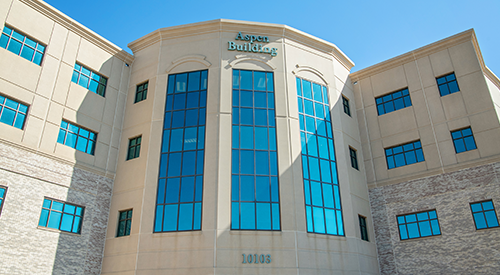What is Peptic Ulcer Disease?
Peptic ulcer disease is a condition in which ulcers develop in the lining of the stomach or the first part of the small intestine (duodenum). Normally, there is a thick layer of mucus that protects the stomach lining from digestive juices. However, there is a selection of things that can reduce this mucus layer and result in damage to the tissue such as H. pylori bacteria and the use of NSAIDs.
Common symptoms of ulcers include:
- Burning stomach pain.
- Heartburn.
- Nausea.
- Inability to tolerate fatty foods.
- Bloating.
How is Peptic Ulcer Disease Diagnosed?
In order to diagnose an ulcer, your provider will first perform a physical exam and speak with you regarding your medical history. A number of diagnostic tests may also be recommended, including a breath test to detect H. pylori, endoscopy or an upper gastrointestinal series of X-rays.
Peptic Ulcer Disease Treatment Options
Overall, the appropriate treatment for your ulcers will depend on the cause. Medications may include:
Antibiotics
A combination of antibiotics will be used in cases where H. pylori is present.
Proton Pump Inhibitors
These medications reduce stomach acid by blocking acid production and are available in prescription or over-the-counter varieties.
Histamine (H-2) Blockers
These medications reduce the amount of stomach acid that is released into your digestive tract.
Antacids
Antacids work by neutralizing existing stomach acid to provide pain relief.
Cytoprotective Agents
These medications help to protect the tissues that line your stomach and small intestine.
Your South Denver GI Team
At South Denver GI, our team of physicians and advanced practice providers have the expertise to provide you with outstanding care. If you would like to learn more about Peptic Ulcer Disease or need to schedule an appointment at our office, contact us today!
View All Our Providers
Contact Us Today
If you would like to learn more about peptic ulcer disease or to schedule an appointment with one of our providers, contact South Denver GI today. We will be happy to answer any of your questions!
Contact UsRequest Appointment
Click on the Schedule Appointment button to schedule an appointment with your South Denver GI provider online. If you do not wish to use our convenient online scheduling tool, please fill out the form below and our team will contact you shortly.







